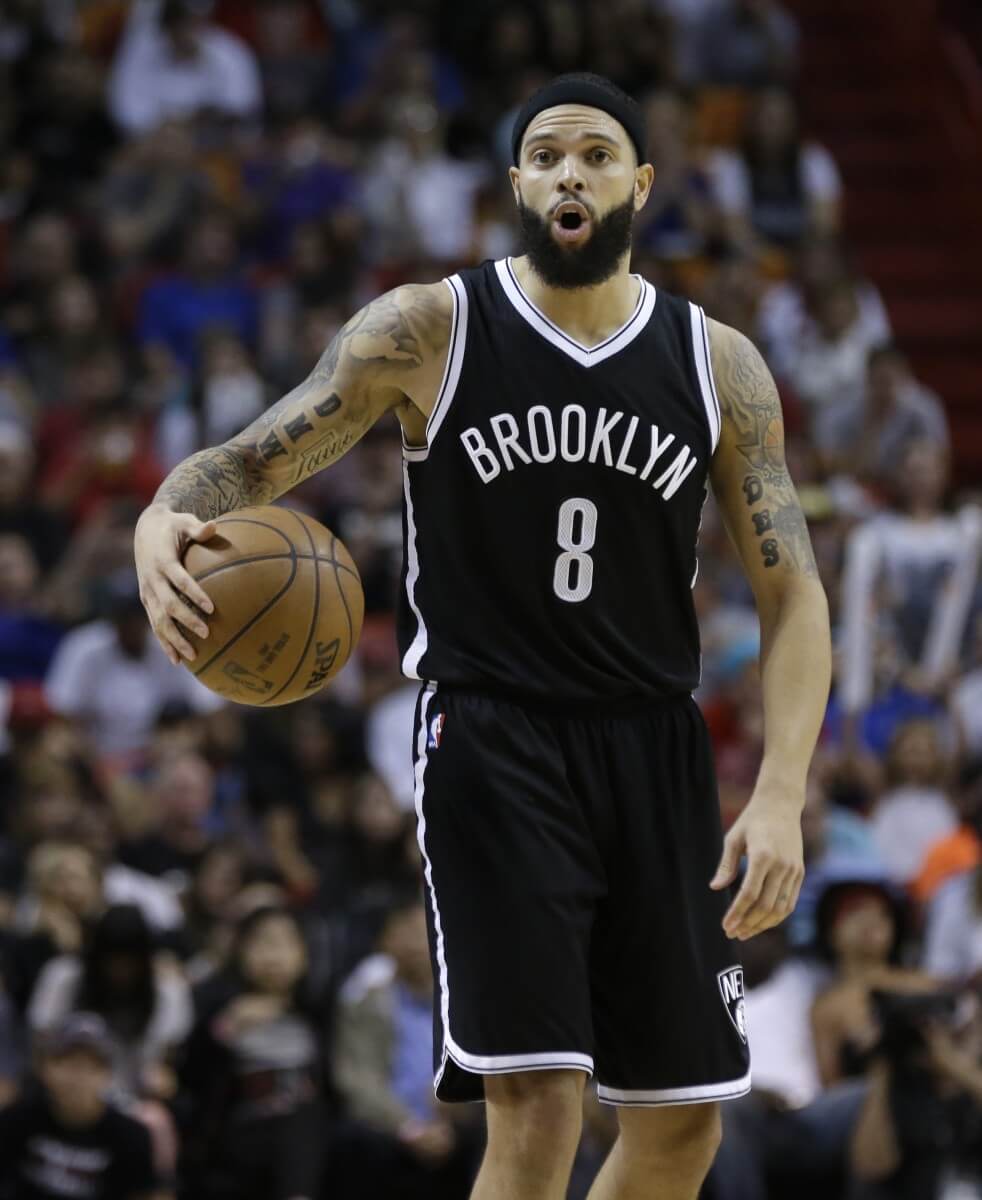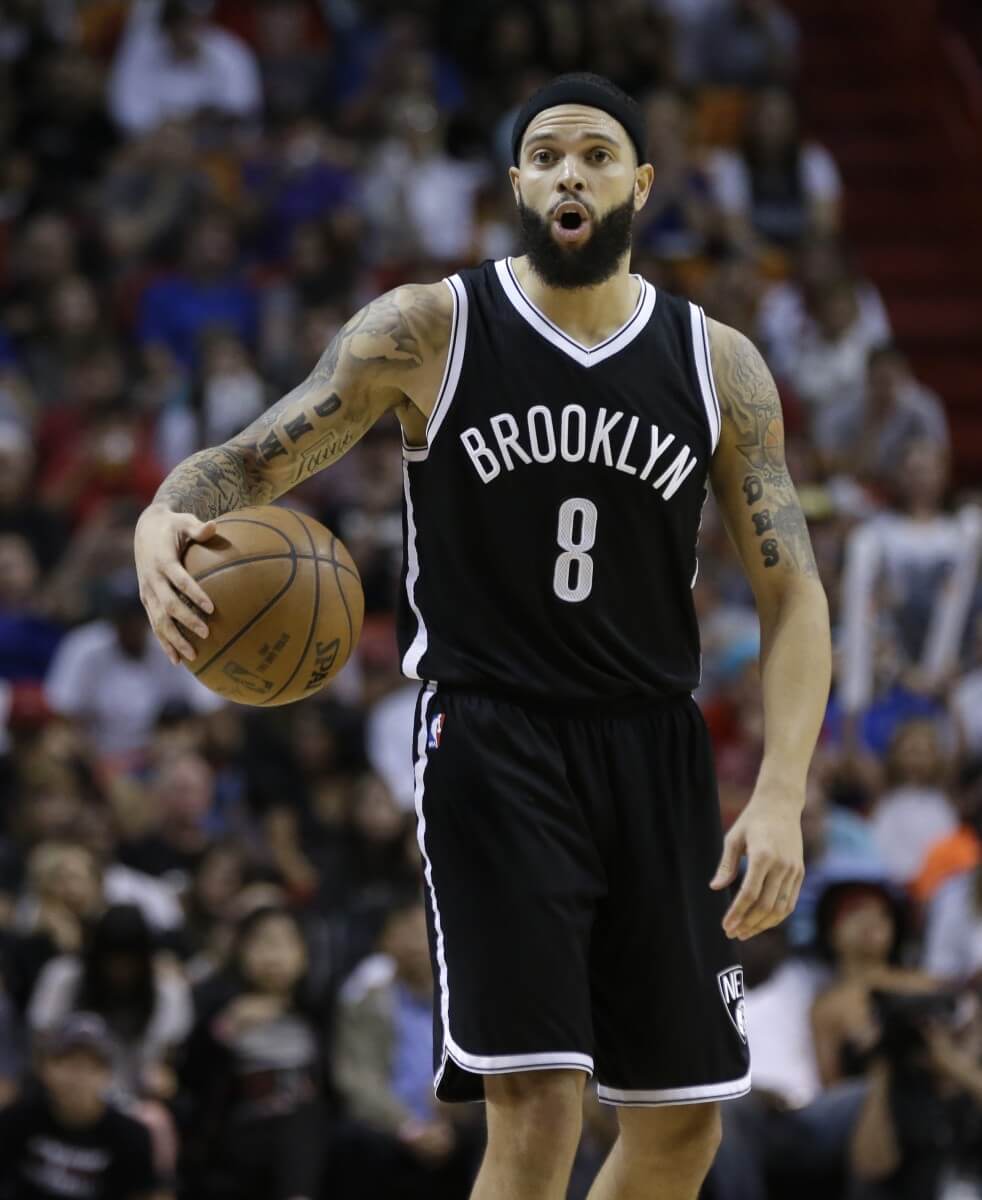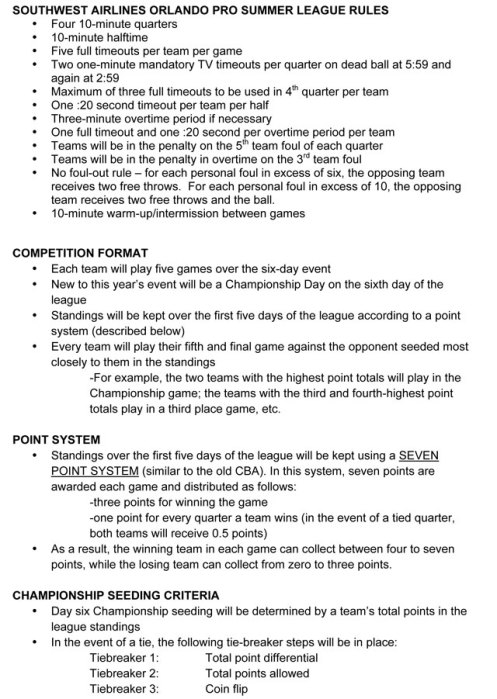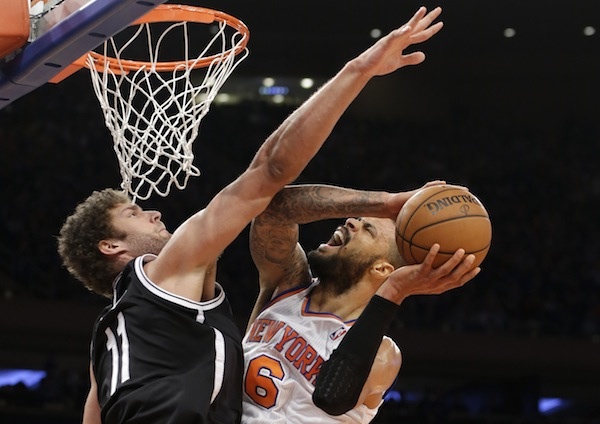
It’s no secret that Deron Williams and the Nets didn’t get along by the end. He took $16 million less (now more like $5 million after signing his two-year deal with the Mavericks) to break his contract and become a free agent. When speaking with the official Mavericks team reporter, Williams cited the “stability” that the Dallas franchise would bring… a far cry from the team that has had four coaches preside over 38 different players in just three seasons.
But rumors of Williams clashing with coaches have haunted him since his acrimonious departure from Utah, and longtime Jazz physician Dr. Lyle Mason threw another ghost in the ring. In a fascinating and wide-ranging interview with Salt City Hoops, Mason asserted that former Jazz coach Jerry Sloan & Williams just never got on the right page:
… They thought (Deron) might be just a little bit better than Chris, although they liked both players, and then when he started playing, he was an outstanding player. BUT, the personality conflict grew between him and the coach, and eventually it became impossible for the two of them to stay. When the coach quit, management still decided that it was best if he went somewhere else.
Deron was the opposite of Stockton: Deron could not handle the coach calling any plays. He wanted to call every play. I’ll never understand why that was such a big deal, that if the coach called one play, he was going to run another one, which he always did. And that was part of what really drove them apart, was that Deron just decided he didn’t need coaching, and Jerry obviously thought otherwise.
Deron, in my dealings with him was always very nice, very friendly, I still consider him a friend.
He seemed to really like the environment in Utah for raising kids; he still talks about that.
I think he did. Why he couldn’t adapt to Coach Sloan’s way of coaching, I don’t know. I know that Karl and John adapted to it because of their tremendous respect for Jerry. And maybe that same respect was not there with Deron. I don’t know. But when he plays, he’s a great player. But obviously changing teams in midstream is going to adversely affect his career somewhat, but Chris Paul also did the same thing and he’s done alright.
Mason has spent 36 years with the Jazz, so he’s seen just about everyone from Jerry Sloan to John Stockton to Williams and back.
It’s not an accident that all three of the Nets coaches hired in Williams’s tenure were former NBA point guards. But none of them seemed to connect with Williams: Avery Johnson’s ousting came shortly after Williams criticized his offense, Jason Kidd & Williams reportedly no longer speak after being golfing buddies, and, well, Lionel Hollins is still here, even after Williams reportedly had to be restrained from Hollins during a team meeting this year.
The idea that Williams can be a nice guy and difficult to coach & play with aren’t mutually exclusive, and that’s kind of what Mason is talking about here. Williams has done a lot of good outside the lines, whether it’s speaking up against worldwide slavery, working as a face for Autism advocacy, or his willingness to critique the NYPD following the death of Eric Garner. His love for Utah, which Mason & the interviewer hint at, is also something he’s mentioned publicly.
But on the court, things change fast, and we saw what happens when confidence meets physical thresholds. Williams exuded a brashness when he was first traded to the Nets that’s indicative of the Williams Mason talks about. (Remember when he yelled “This is my home now” at A.J. Price and then dissed him in the post-game press conference?) The keys to the Nets franchise were handed to Williams from day one, as well as a max contract and championship expectations.
There’s hope for him again, because time is linear and we’re conditioned to find hope in things that are still there. Perhaps a change of scenery is really all he and his body needed to perk up; the reports that he’s in great shape with something to prove (an annual tradition in Brooklyn) have already begun trickling in.
Mavs encouraged by what they've seen from Deron Williams in informal AAC workouts. Looks lean and quick. Knows he has a lot to prove.
— Tim MacMahon (@espn_macmahon) August 31, 2015
But as his time in Brooklyn wore on, he notoriously and publicly struggled with confidence, in just about everything: in his shot, in his body, in his ability to take over a game with his passing and size. He rubbed people the wrong way, and lost trust in his own game. Whatever it was that pushed him to make all the decisions, over the heads of his coaches, just wasn’t there anymore. The only decision left for him to make was to get out.
Salt City Hoops: Interviewing Dr. Mason, Part II: AK, Deron, Ty vs. Quin

















